This is a re-post of an interesting article I found on the net:
Disturbia in Suburbia – A Permanent Decline in Residential Property Values?
August 22, 2008 by Mr. ToughMoneyLove
Residential Real Estate is in Decline (But is it Temporary?)
It is no secret that residential property values in numerous urban and suburban centers have substantially declined in recent months. The accepted cause of such declines has been the collapse of the credit markets, overextended and under-employed homeowners, and the resulting loan defaults and foreclosures. The optimistic real estate pundits confidently predict that once all of the bad loans are flushed through the system and written off the books of the large lenders, things will return to normal. That makes sense.
In the Suburbs It’s Worse than We Thought
But some experts think that more is happening. These real estate and economic experts are bringing some hard truth to the surface: That suburban property values will not return to their glorious levels of old and are destined for a permanent decline. Mr. ToughLoveMoney, being a suburban homeowner himself, is very interested in this prediction because he expects to downsize in the not too distant future. Home equity is part of his financial and retirement plans as it no doubt is for many others.
Traffic + Commuter Frustration + Increasing Gas Prices = Trouble in Real Estate Land
A substantial percentage and perhaps a majority of the workers in many urban areas get up early in the morning, get in their cars, and drive 30 minutes, 60 minutes, or even longer to their jobs in or near the urban core. At the end of the day, they reverse the process. They live in the suburbs which is supposed to provide a relaxing escape from the stress of working life. But the stress trend is going in the opposite direction.
According to one study, commuting stress (measured by heart rate and blood pressure) can often exceed that of fighter pilots going into battle or riot policemen. (I’m not making this up – read it yourself.)
Another study from UC Irivine had this conclusion:
Researchers found that driving alone under stressful conditions can actually cause or contribute to high blood pressure or stroke. According to this study, a long commute (more than 18 miles one way) may increase the likelihood that you will have a heart attack. It’s not only the stress involved that can increase your heart rate and blood pressure, but also the exposure of commuters to high levels of air pollution, which appears to be a risk factor for heart disease.
The worst areas for commuting (according to Forbes) are:
1. Riverside, Calif.
2. Atlanta, Ga.;
3. Los Angeles, Calif.;
4. Houston, Texas; and
5. Washington, D.C.
Urban Residential Real Estate is Actually Doing Better
And now we add increasing commuting costs to the equation, brought on by the huge increases in gas prices. The data coming in shows a negative trend in suburban real estate values from these increases.
A 2008 research study by CEOs for Cities, a nonprofit group of mayors, business executives and foundation leaders, revealed that increasing gas prices were lowering suburban property values, particularly in neighborhoods located far enough from urban centers to require a lengthy commute. Conversely, the study found that values of homes in neighborhoods near urban centers were increasing.
The study examined residential real estate values in Pittsburgh, Los Angeles, Tampa, Portland and Chicago, which have metropolitan areas that have experienced differing levels of new residential development. The study found that nationally the decline in value of residential property 12 miles from a central business core were 2 to 4 percent greater compared to values in neighborhoods two miles away. This is not what we suburban dwellers are used to hearing.
In Pittsburgh, real estate values of neighborhoods close to the city core rose 2 percent over the past year while home values in the farther out suburbs declined 5 percent.
Obviously, this disturbiing data for suburban home owners is caused by more than the weak credit markets. People are figuring out that between commuting stress and commuting costs, living in McMansions in far flung suburban areas just ain’t what it used to be. People want to be closer to where the jobs are. And now homeowners in those areas are being hit by this reality: The appreciation in the value of their homes that they anticipated when they bought may not happen. They may actually depreciate, slowly but surely.
Some Financial Planning Recommendations
So what does this mean for our overall financial and retirement planning? Here is the tough love picture:
If you live in the suburbs and are counting on cashing out your home equity to fuel your retirement plan, do not have unrealistic expectations as to appreciation. Consider the risks of possible depreciation.
If you live in or near a central business core and are considering heading to the suburbs, think again. Holding on to your property may provide a return on your investment that far exceeds what you will experience by moving outside the city. At the least, look for a suburban area that has a strong job center in close proximity.
Re-visit your investment portfolio. If you own a REIT, a REIT mutual fund, or stock in one of the major suburban home builders like Pulte, consider the affects that these property value trends will have on the performance of those holdings. It may be time to make some adjustments.
Let me apologize to my suburban readers for bringing such disturbing news but I’m all about hard truth. (But you knew that already, didn’t you?)
Now I must leave to commute to work. (Breath deeply ….relax…..)
Subscribe to:
Post Comments (Atom)


























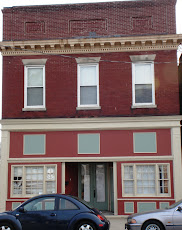

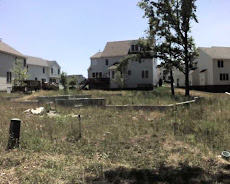

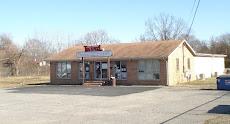

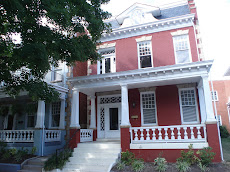



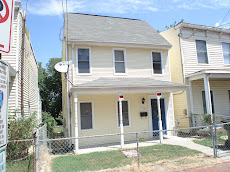










No comments:
Post a Comment